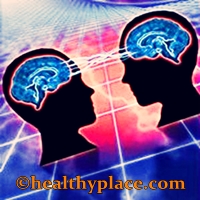Excerpts from the Archives of the Narcissism List Part 14
- Abusive Parents
- Hatred and Anger
- Narcissistic Regression versus NPD
- Narcissists and Abandonment
- Deleting Past Sources of Narcissistic Supply
- Realizations
- Narcissism and Nihilism
- Narcissism and Genetics
1. Abusive Parents
When abusive parents abuse - they are children again, trying to cope with their own past abuse. It is through the abuse of their children that they are trying to resolve open conflicts, to "balance the accounts", to regain a sense of justice and predictability and internal peace. If abuse is a fact of life, a natural phenomenon, an inevitability, something parents are supposed to do to their children - then all is well, past abuse hurts less, and a serenity of mind is restored. This is an accountancy of pain in which each entry is a writhing, screaming, aching child.
But the abusive parent IS such a child himself or herself. This is what makes abuse impossible to cope with emotionally. Because to do so means to have the insight that we never had caring parents, that our parents were children, and that, therefore, we were never really loved as every child deserves to be and should be.
Is it better to give life in an instant and take it away over many years - or not to give life at all? I am not sure what the answer is.
If we hate and loathe ourselves - does this preclude hating and loathing our tormentors and abusers?
Aren't they the reason we hate ourselves in the first place?
Should the fact that we share genetic material with someone shield him or her from well deserved hate, scorn, contempt, and upbraiding?
Are abusers exempt from punishment only because they were abused before? Is this the world we inhabit: mechanical, unstoppable, deterministic? No free will, no love, no forethought, no consciousness, no conscience, no sentient beings capable of remoulding themselves through inspection and introspection?
Our abusers are accountable to us, the abused - because they could have behaved differently.
In this case "love thyself" does NOT, cannot go together with "love thy parent", for instance.
If you let your abuser go, you ARE.
While if you do not - you are NOT.
Your abusing parent NEGATES you. You are like matter and anti-matter, positive and negative, acid and base. He attacked your very BEING when you were defenseless, unable to resist his doubting of your existence. And his voice keeps casting doubts on your existence, from inside. The hatred that you feel is your BIOLOGICAL reaction to this voice. HE permeated your cells first - and they react allergically, forming antibodies of hatred that begat fear (of being left alone) that begat rage.
And as long as he possesses you and inhabits you and infests you - you do NOT exist really and fully. This is the choice you are facing:
Being - but alone, or Not Being - in the company of the poltergeists of your childhood.
This is the famed Stockholm Syndrome. Hostages side with their captors rather than with the police.
I heard the view before - that shame and grief are bound together, one probably a derivative of the other - and I disagree with it strongly. Grief has for too long been considered to be an auxiliary emotion, a derivative reaction, a "reactive" sensation. In my view, it is a SPECTRUM of emotions (shame included, for instance at one's helplessness). Trying to reduce it to a one-dimensional construct is wrong. It is interesting to note that Love and Grief - the two strongest emotions known to Mankind - have been reduced this way so often.
2. Hatred and Anger
Hatred is often massively suppressed anger, ossified into the weird stalactites and stalagmites of hatred.
Hatred does not flow - anger does. Hatred is a structure - anger, a stream.
Hatred is a being, it permeates every cell. It feels so natural that it is hardly ever noticed. It speaks through anger, though. Hatred is static - anger the dynamics, its energy, its changing aspects, its holographic angles.
Anger you feel, hatred you live.
What is wrong with hating those deserving of hate? I can see nothing wrong in an emotion PER SE. If it is proportional and directed at the appropriate target - it is correct and true and worthy. There can be no healing where emotions are suppressed, even (perhaps, especially) negative emotions. Emotions are created to be felt, even the extreme ones, fostered in extreme circumstances by extreme monsters masquerading as human beings.
If I were you, I would have befriended my hatred. I would have studied it and let it study me. I would open up to it and allow it to inhabit me.
Afforded the luxury of being unconditionally accepted, maybe your hatred would not feel the pressing need to assert itself. Its existence not threatened by false morality of "right" and "wrong" and "negative" and "positive" - perhaps your hatred will allow you to accept yourself. Strike an agreement with that which can never go away. And remember: it is not YOU who gave birth to this monster and bred and fed it and indulged it. It is your father. It is HIS hatred that merely resides in you. Isn't it only very ethical and righteous to return a deposit to its rightful owner? You are returning HIS hatred to HIM. It is the way of the world. This is how it has to be. And you should feel no guilt, or shame, or blame for succumbing to that which is greater than us all: to human nature.
3. Narcissistic Regression versus NPD
Narcissistic reactions (regression) are short term and not all-pervasive.
The regression is reactive, directly attributable to a specific event, and highly correlated with other grief and loss related reactions.
Moreover, in narcissistic regression, the narcissistic behaviors do not persist. They recede with time until they vanish completely. They do not overtake the whole personality, or permeate it.
They are confined to specific areas in the life of the affected person. They rarely involve lack of empathy and are more inclined to include grandiosity and magical thinking (omnipotence, omniscience, and omnipresence).
Narcissistic regression sometimes appears with substance abuse.
There is no conclusive evidence that alcoholism and narcissism are related.
You must also clearly distinguish alcoholism from social drinking or reactive drinking (for instance, due to a life crisis).
BUT
Impulsive behaviors (drinking, gambling, reckless driving, or compulsive shopping) ARE one of the criteria of the Borderline personality disorder (though not of NPD).
Most addicts have narcissistic TRAITS. NPD is an addiction to Narcissistic Supply. The 12 step programs address this attribute of addicts DIRECTLY by attacking their narcissism. They are obliged to relegate the control over their lives to a higher power (not necessarily God).
4. Narcissists and Abandonment
Narcissists are terrified of being abandoned exactly as codependents and Borderlines are.
BUT
Their solution is different. Codependents cling. Borderline are emotionally labile and react disastrously to the faintest hint of being abandoned.
Narcissists FACILITATE the abandonment. They MAKE SURE that they are abandoned. This way they secure the achievement of two goals:
- Getting it over with - The narcissist has a very low threshold of tolerance of uncertainty and inconvenience, emotional or material. Narcissists are very impatient and "spoiled". They cannot delay gratification OR impending doom. They must have it all NOW, good or bad.
- By bringing the feared abandonment about, the narcissist can lie to himself persuasively. "She didn't abandon me, it is I who abandoned her. I controlled the situation. It was all my doing, so I was really not abandoned, was I now?". In time, the narcissist adopts this "official version" as the truth. He might say: "I deserted her emotionally and sexually long before she left".
This is one of the important Emotional Involvement Prevention Mechanisms (EIPMs) that I write about extensively here.
5. Deleting Past Sources of Narcissistic Supply
I am a narcissist. I was married to a wife for nine years. I thought and felt that I loved her more than myself, that she was my extension, a vital organ, a life sustaining substance, a drug.
The minute we divorced - she was deleted from my archives. I never spoke to her again. Not because I am angry at her - but because she is not a worthwhile investment any longer. With limited resources of time and mental energy I began vigorously pursuing other sources of narcissistic supply. She no longer constituted one, even potentially - so, why bother? She was so effectively deleted from my mind and memory that I find that I have no interest in what has or hasn't happened to her in the slightest. I rarely if at all think about her or us.
Had she tried to contact me I would have regarded it as an insolent intrusion upon my private life, a waste of my precious and cosmically significant time, a boring, irrelevant post mortem of a now defunct business venture with nothing to gain from it. I would in turn be flattered (that she emotionally NEEDS me so, that I am indispensable), then I would have gotten bored and then simply angry at having to go through all this. I would have become discourteous and finally abusive in an effort to terminate this utterly superfluous exchange.
It could be speculated that my behavior is a defense mechanism against the pain and hurt inflicted upon me by her abandonment (what I call EIPM - Emotional Involvement Prevention Mechanism here). But this is, at the very best, a very partial explanation. I behave the same with "close" friends, business "associates", other women in my life who never hurt me nor were contemplating to. No, the better, more complete explanation is the shift of scarce energy from a defunct source of narcissistic supply - to a newly promising one. The shift is so abrupt and so total that it is MECHANIC, not human. Hence the apprehension and tremendous agony of those who are its objects.
Many theoreticians and clinicians came to the conclusion that narcissism is, indeed, a disturbance in development, growth interrupted. They invented special technical and non-technical terms to describe this: "Puer Aeternus" (the Eternal Adolescent - a term coined by the Jungian Satinover) or "The Peter Pan Syndrome" (though the latter was not exclusively linked to narcissism).
Freud - as opposed to Jung and others - regards narcissism as a permanent, fixated regression to very early childhood. The narcissistic feelings of omnipotence, omnipresence, and omniscience compensated the child for the creeping realizations of powerlessness, object temporariness (mother or other objects disappear sometimes), and ignorance. It is a defense mechanism the child - with the help of a "good enough mother" (Winnicott) - is supposed to dispense with later in life. But if the mother (or other primary caregiver) is not "good enough", the child feels too insecure to overcome his narcissism and "gets stuck" at that stage for the rest of his adult life. The narcissist refuses to grow and face his own limitations and the world which he perceives - after his the model provided by his mother - to be hostile, unpredictable and cruel.
Much more in FAQ 64 and FAQ 25
6. Realizations
I realized:
- That the only enemy worth considering are inside me.
- That only semantics separates illusion from reality.
- That being hurt is a not a conscious decision or a choice -
and that therefore, I should stop feeling guilty or blameworthy. - That it is only through others that I can be led to myself.
- That my detractors possess only the power I give them and never more.
- That "Everything Flows" is both a source of sadness and a source of hope and strength.
- That, therefore, sadness is a source of hope and strength.
- That only I possess the licence and the wherewithal to perpetuate my abuse.
- That even my premeditation is accidental.
- That my intelligence is a double edged sword.
- That anything I say can and will be used against me but it should not deter me.
- That my omnipotence is powerless and my ignorance is omniscient.
- That I live only once and am whiling my present away mourning the past and fearing the future.
- That, in the face of dead ends, it is best to reverse course.
7. Narcissism and Nihilism
I don't think that there is a necessary connection between the will to power (Nietzsche) and narcissism. Narcissism has more to do with UNREALISTIC, grandiose fantasies, and lack of empathy. A realistic pursuit of power would not qualify as narcissism, to my mind.
To my mind, the "morphogenetic field" of "cultural narcissism" is a set of potentials. It includes many possible behaviors (some of them socially permissible, others not). The narcissist, having been subjected to abuse (doting and spoiling are forms of abuse because the child is treated as the parents' extension) - selects from the set of potential behaviors those behavior patterns that define him as a narcissist.
The big mystery is: why do we select behaviors the way we do? Why does one react to abuse by developing a personality disorder and another be seemingly glossing over it? I think that the answer is: genetics. Our repertoire of reactions (=personality) is genetically predisposed.
8. Narcissism and Genetics
There is a lot of research that shows that the brain - plastic as it is - reacts structurally and (dys-)functionally to abuse and trauma. The brain seems to retain an astounding level of plasticity well into adulthood and this would tend to explain why talk therapy works (when it does).
Large scale experimentation or surveys have been conducted in relation to many personality disorders (Borderline and Schizotypal, to mention but two). Hereditary components have been clearly demonstrated in some PDs (example: there are significantly more schizophrenics in families of schizotypal PDs than in control group families, or families of other PDs).
Brain structural differences have been demonstrated in other PD's (Borderline). Only NPD went almost un-researched. Not only because it is a relatively new mental health category (1980) - schizotypal and ADHD, for instance, are even newer. The reason seems to be that therapists and researchers simply hate working with narcissists and their (usually narcissistic) parents, etc. The narcissist makes the therapist's life a living hell. But, then, what is new?
next: Excerpts from the Archives of the Narcissism List Part 15

 I would like to say a few words about some reforms needed in public policy if we are to give people with depression and bipolar disorder, in particular, and people with chronic mental illness in general, a reasonable chance for adequate treatment. I am not a sociologist or a political scientist, so I must leave it to others to devise methods for actually accomplishing these goals.
I would like to say a few words about some reforms needed in public policy if we are to give people with depression and bipolar disorder, in particular, and people with chronic mental illness in general, a reasonable chance for adequate treatment. I am not a sociologist or a political scientist, so I must leave it to others to devise methods for actually accomplishing these goals.
 I don't know about you, but I used to have very mixed feelings about sex and/or a relationship with someone else. When I was in counseling, my therapist would say this is normal for everyone. "Sometimes you want it, sometimes you don't," she'd say.
I don't know about you, but I used to have very mixed feelings about sex and/or a relationship with someone else. When I was in counseling, my therapist would say this is normal for everyone. "Sometimes you want it, sometimes you don't," she'd say.